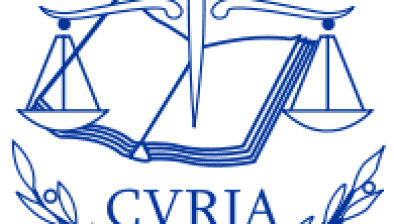High Court: Judge refuses to make an order for surrender of man to Poland under European Arrest Warrant
The High Court has refused to grant an order for the surrender of a man to Poland pursuant to a European Arrest Warrant issued in 2018.

About this case:
- Citation:[2019] IEHC 433
- Judgment:
- Court:High Court
- Judge:Mr Justice Donald Binchy
In 2013, the High Court had refused surrender when considering a warrant issued in 2010 for the same offences.
Mr Justice Donald Binchy was satisfied that the substance of the 2018 warrant was no different to the 2010 warrant and that the surrender was prohibited by s.45 of the European Arrest Warrant Act 2003.
Application for surrender
In the High Court, Minister for Justice and Equality sought an order for the surrender of Mr Adam Grzegorz Krupa to the Republic of Poland pursuant to a European Arrest Warrant (EAW) dated 22nd May 2018. It was issued by the District Court in Jelenia Góra III Penal Department.
In October 2018, the EAW was endorsed by the High Court, in accordance with s. 13(2) of the European Arrest Warrant Act 2003 (as amended).
In the EAW, it is stated that the warrant is based upon three enforceable judgments: one judgment dated August 2003 for a drink driving offence, and judgments dated August 2005 and February 2006 for “fraud” offences.
In June 2010, an EAW had been issued in respect of these and other offences. In the High Court in 2013, Mr Justice John Edwards refused to surrender Mr Krupa.
Points of Objection
Points of objection were delivered on behalf of Mr Krupa contending that:
- The application was an abuse of process in circumstances where this Court already adjudicated on an earlier warrant in respect of the same offences, concluding at the time that Mr Krupa should not be surrendered.
- The surrender was prohibited by s. 45 of the European Arrest Warrant Act 2003 as it was clear that, in relation to two of the judgments, he was not summonsed in person to attend court nor did he receive notification of the judgments. Moreover, the warrant did not state that he would be afforded the right to a retrial on these offences if surrendered.
- While the issuing authority ticked the box indicating that the offences were “fraud” offences, it was not clear which offences they related to;
- Surrender should be denied because of the interference that it would cause to the private and family life of Mr Krupa contrary to Article 8 of the European Convention on Human Rights, having regard to the delay in the issue of the warrant to offences dating back to a period between 2003 and 2006
High Court
It was not in dispute that the offences were, together with other offences, the subject of the 2010 EAW. In relation to the first judgment dated August 2003, Mr Justice Edwards refused surrender because it was impossible to demonstrate correspondence with an offence in Irish law due to the difficulty in showing correlation between the units used for measuring blood alcohol in Poland and Ireland.
Mr Justice Binchy said that “nothing at all had changed” since Mr Justice Edwards’ decision in 2013, and therefore the surrender must again be refused due to the inability to demonstrate that the actions of Mr Krupa on the occasion in question constituted an offence in Irish law.
In relation to the February 2006 judgment, Mr Justice Binchy explained that Mr Krupa had not appeared personally at the trial when the judgment was pronounced, nor was he served with the Court’s decision or his right of appeal, or his entitlement to request a retrial. Although more information was provided to the court in the present application, Mr Justice Binchy said that in substance there was no difference between the information in the 2018 EAW and the 2010 EAW on the basis of which Mr Justice Edwards had refused surrender.
Mr Justice Binchy said section 45 of the European Arrest Warrant Act 2003 was “mandatory in terms” – in that if a person did not appear at the proceedings which resulted in the sentence in respect of which the EAW was issued, then surrender must be refused unless other factors set forth in D.3.1 – 3.4 apply. Mr Justice Binchy explained that what was stated on D.3.3 of the EAW was not in exact conformity with the standard prescribed form.
Moreover, Mr Justice Binchy said “D.3.3 of the EAW requires a statement, to the effect, that judgment was served upon Mr Krupa, and not merely “sent” to him. If such a condition cannot be met, because of the absence or unavailability of the sentenced person, then the requesting State may overcome this difficulty by affording the requested person the choice of a retrial. That choice has not been exercised in this case either”.
In all the circumstances, Mr Justice Binchy said the surrender of Mr Krupa in connection with the February 2006 judgment was prohibited by s. 45 of the European Arrest Warrant Act 2003.
As regards the August 2005 judgment, Mr Justice Binchy said there remained the same difficulty that arose in Mr Justice Edwards’ judgment, and that the sentence imposed on Mr Krupa in connection with this offence was also imposed following a trial in absentia. It was stated that the summons to court was collected by Mr Krupa’s wife and also that the notification of the judgment was collected by his wife.
In the Court of Justice of the European Union in Case C-108/16 Openbaar v. Pawel Dworzecki it was stated that in order to achieve the objective in Article 4a(1)(a)(i) of framework decision 2002/584 “…it must be unequivocally established that that third party actually passed the summons on to the person concerned”. Mr Justice Binchy said it was clear from that case that the service outlined in Mr Krupa’s EAW was inadequate, and surrender must be refused.
- by Seosamh Gráinséir for Irish Legal News











